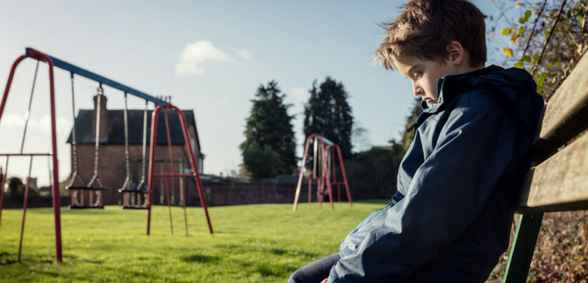
‘We need to change our approach towards managing children who have experienced trauma,’ says Dr Judith Howard, a senior lecturer with the Queensland University of Technology in Australia and lead educator of the online course Teaching students who have suffered complex trauma.
Here she looks at the importance of applying trauma-informed practice and programmes in schools.
 Many schools are still struggling with managing pupils who exhibit the most challenging behaviours, in ways that do not involve exclusionary discipline. Despite the best intentions of schools and school leaders, suspension and exclusion rates remain high and disciplinary responses are – unfortunately – often directed at the most disadvantaged of students.
Many schools are still struggling with managing pupils who exhibit the most challenging behaviours, in ways that do not involve exclusionary discipline. Despite the best intentions of schools and school leaders, suspension and exclusion rates remain high and disciplinary responses are – unfortunately – often directed at the most disadvantaged of students.
After years of schools adopting admirable, whole-school frameworks that emphasise positive behaviour support and restorative responses, it’s becoming increasingly clear that – despite many benefits – these approaches don’t go far enough.
Understanding the real impact of trauma
New research is driving an international reassessment of school and systemic approaches to pupil support and school behaviour management. This research is grounded in findings from neuroscience and is explaining the impact that complex trauma has on the experiences of pupils during the schooling years and beyond.
Complex trauma involves the exposure to repeated traumatic experience that is interpersonal and includes factors such as emotional, physical or sexual abuse, significant neglect or violence. It also involves the wide-ranging, long-term impact of this exposure.
This type of trauma, which occurs during infancy and childhood, can have a worrying impact on developing brains and nervous systems. If not addressed, this can lead to relational, emotional and behavioural concerns throughout childhood, adolescence and even adulthood that are difficult to remedy and expensive to manage.
The research: what’s it telling us?
International research is examining the significant societal expenses and productivity losses associated with unresolved complex trauma – which can impact on health, welfare, education, child protection and care, crime, unemployment and accommodation support systems, as examples. There is also growing evidence that unaddressed complex trauma can be transmitted across generations, leading to intergenerational familial duress and compounded social expense.
In response, there is growing recognition of the need to address the impacts of complex trauma from systemic levels – and, increasingly, this is involving schooling systems.
At school, these already vulnerable young people can experience serious challenges with learning, emotional self-regulation and relating to others in a safe and adaptive manner. Of course, working with these pupils can also have a concerning impact on the work and well-being of educators.
Neuroscience: the way forward
Neuroscience is now providing an explanatory framework to understand why these pupils can exhibit such concerns and why traditional or usual means to manage their behaviours tend not to be effective.
There are now explanations for how and why these students can feel unsafe at school, why they can persistently sabotage relationships with educators and peers, and why they can suffer frequent bouts of serious emotional dysregulation.
There is now understanding that the concerning behaviours of these pupils are not simply learnt or chosen, rather, they can be due to maladaptive development of neural pathways during critical periods of growth.
However, research is not just delivering bad news, but is also providing much hope!
A window of opportunity
It is now clear that the schooling years provide a substantial window of opportunity to remedy harm done and to prevent or alleviate longer-term consequences, given the substantial amount of time students spend at school and the very malleable nature of the child or adolescent brain.
Neuroscience is providing a different template of possibility for enhancing the educational and life outcomes of pupils through school practices that are far more likely to be supportive of learners and those aiming to educate them. It is showing that practices that are trauma-aware can actually lead to neurological repair and enhance neurological function.
Adopting trauma-aware frameworks
To work from a trauma-aware perspective, school personnel need to have access to information and training regarding the neurobiological impact of complex trauma and trauma-aware practices. These practices need to focus, in particular, on developing pupils’ capacities for emotional self-regulation, relating and learning.
Schools also need to examine their current policies – especially, behaviour management policies – and processes for elements that might enhance or hinder a trauma-aware approach.
Ideally, this requires a systemic, whole-of-government response but in the interim, individual schools across many countries are adopting trauma-aware frameworks to enhance outcomes and minimise concerns for trauma-surviving pupils and for those who are working hard to educate them.
Although this is not the job of schools alone, the schooling system is a vital contributor to a collaborative solution as we work towards addressing the impact of complex trauma for this vulnerable and victimised group of children and young people.
Don’t forget to follow us on Twitter, like us on Facebook, or connect with us on LinkedIn!
